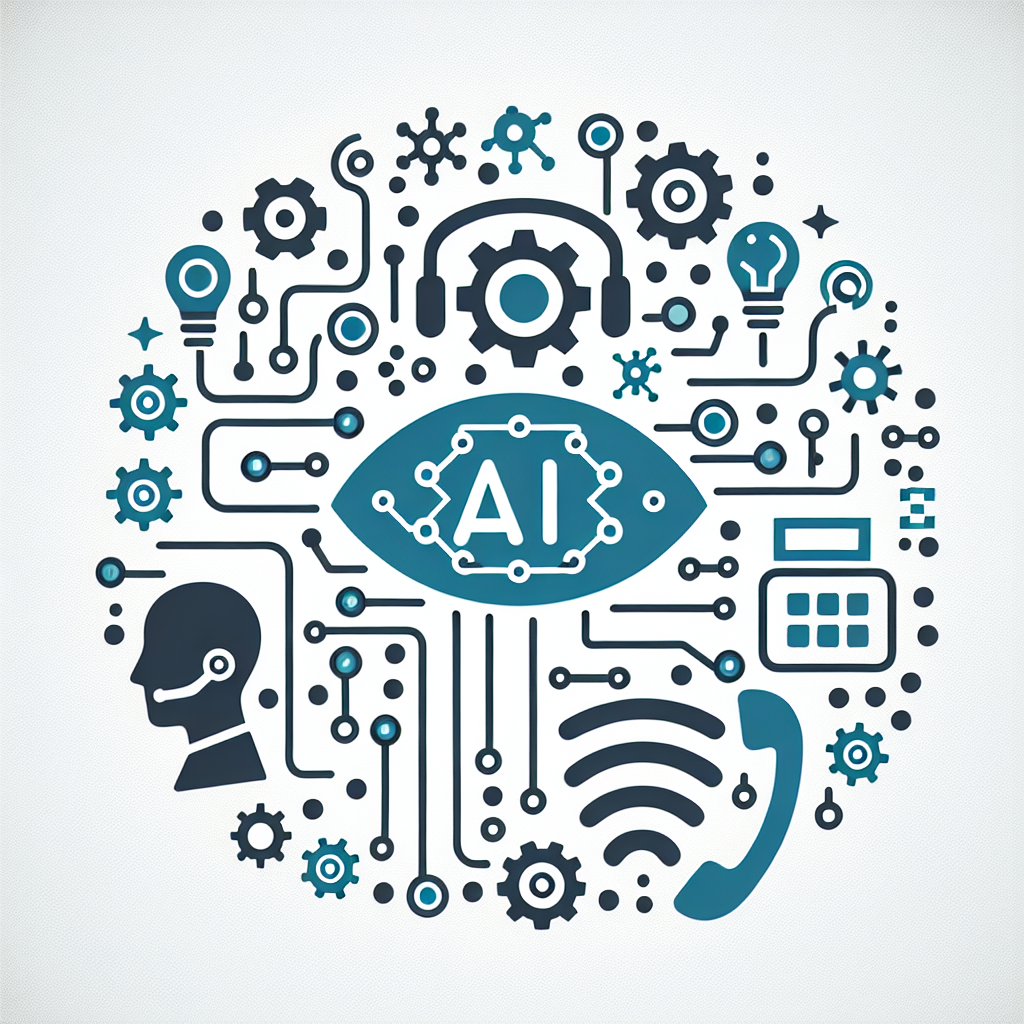Artificial Intelligence (AI) has revolutionized the way businesses interact with their customers. With its ability to analyze data, learn patterns, and automate processes, AI has become an indispensable tool in customer service. However, implementing AI in customer service requires careful planning and execution to ensure a seamless and effective experience for both the customers and the business. In this article, we will discuss the best practices for implementing AI in customer service and address common questions businesses may have about this technology.
Best Practices for Implementing AI in Customer Service:
1. Define Your Objectives: Before implementing AI in customer service, it is crucial to define your objectives and goals. Determine what you want to achieve with AI, whether it is improving response times, reducing costs, or enhancing customer satisfaction. Having clear objectives will guide your implementation strategy and help you measure the success of your AI initiatives.
2. Choose the Right AI Solution: There are various AI solutions available for customer service, including chatbots, virtual assistants, and predictive analytics tools. Evaluate your business needs and choose the AI solution that best aligns with your objectives. Consider factors such as scalability, customization options, and integration capabilities when selecting an AI solution.
3. Train Your AI Model: Training your AI model is essential to ensure that it can effectively handle customer inquiries and provide accurate responses. Provide your AI model with a diverse set of data to learn from, including past customer interactions, product information, and frequently asked questions. Continuously monitor and refine your AI model to improve its performance over time.
4. Integrate AI with Human Agents: While AI can automate many customer service tasks, it is essential to integrate AI with human agents to provide a personalized and human touch to customer interactions. Train your human agents to work collaboratively with AI tools and leverage their expertise to handle complex customer inquiries that require empathy and problem-solving skills.
5. Monitor Performance Metrics: Monitor key performance metrics such as response times, resolution rates, and customer satisfaction scores to evaluate the effectiveness of your AI implementation. Use these metrics to identify areas for improvement and make data-driven decisions to optimize your AI strategy.
6. Provide Seamless Omnichannel Support: Customers expect seamless omnichannel support across multiple touchpoints, including phone, email, chat, and social media. Ensure that your AI solution can provide consistent and personalized support across all channels to deliver a seamless customer experience.
7. Maintain Data Security and Privacy: Protecting customer data is paramount when implementing AI in customer service. Ensure that your AI solution complies with data security regulations and industry standards to safeguard customer information. Implement robust data encryption, access controls, and regular security audits to mitigate security risks.
8. Gather Customer Feedback: Solicit feedback from customers about their experience with AI-powered customer service to gather insights and identify areas for improvement. Use customer feedback to refine your AI strategy and make adjustments to enhance the overall customer experience.
9. Stay Updated on AI Trends: AI technology is constantly evolving, with new advancements and trends emerging regularly. Stay informed about the latest AI developments and trends in customer service to remain competitive and leverage new opportunities to enhance your AI strategy.
10. Continuously Improve and Adapt: Customer preferences and expectations are constantly changing, requiring businesses to continuously improve and adapt their AI customer service strategy. Stay agile and flexible in your approach to AI implementation, and be willing to make adjustments based on customer feedback and market trends.
FAQs about Implementing AI in Customer Service:
Q: How can AI improve customer service efficiency?
A: AI can improve customer service efficiency by automating routine tasks, such as answering common inquiries, routing calls to the appropriate departments, and scheduling appointments. This frees up human agents to focus on more complex customer inquiries and provide personalized support.
Q: Will AI replace human agents in customer service?
A: AI is not meant to replace human agents in customer service but to augment their capabilities and improve efficiency. Human agents bring empathy, problem-solving skills, and emotional intelligence to customer interactions, which AI cannot replicate. By integrating AI with human agents, businesses can provide a personalized and seamless customer experience.
Q: How can businesses ensure that AI-powered customer service is secure and compliant with data privacy regulations?
A: Businesses can ensure that AI-powered customer service is secure and compliant with data privacy regulations by implementing robust data encryption, access controls, and regular security audits. Additionally, businesses should ensure that their AI solution complies with data privacy regulations, such as GDPR, HIPAA, and CCPA, to protect customer data.
Q: What are the common challenges businesses may face when implementing AI in customer service?
A: Common challenges businesses may face when implementing AI in customer service include data quality issues, integration complexities, resistance from human agents, and customer skepticism about AI capabilities. By addressing these challenges proactively and implementing best practices, businesses can overcome these obstacles and maximize the benefits of AI in customer service.
Q: How can businesses measure the ROI of their AI customer service initiatives?
A: Businesses can measure the ROI of their AI customer service initiatives by tracking key performance metrics, such as response times, resolution rates, and customer satisfaction scores. By comparing these metrics before and after implementing AI, businesses can evaluate the impact of AI on customer service efficiency and effectiveness.
In conclusion, implementing AI in customer service requires careful planning, execution, and continuous improvement to deliver a seamless and effective customer experience. By following best practices, businesses can leverage AI to enhance customer service efficiency, improve customer satisfaction, and drive business growth. Stay informed about the latest AI trends and continuously monitor performance metrics to optimize your AI strategy and stay ahead of the competition.

